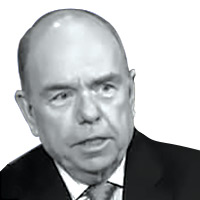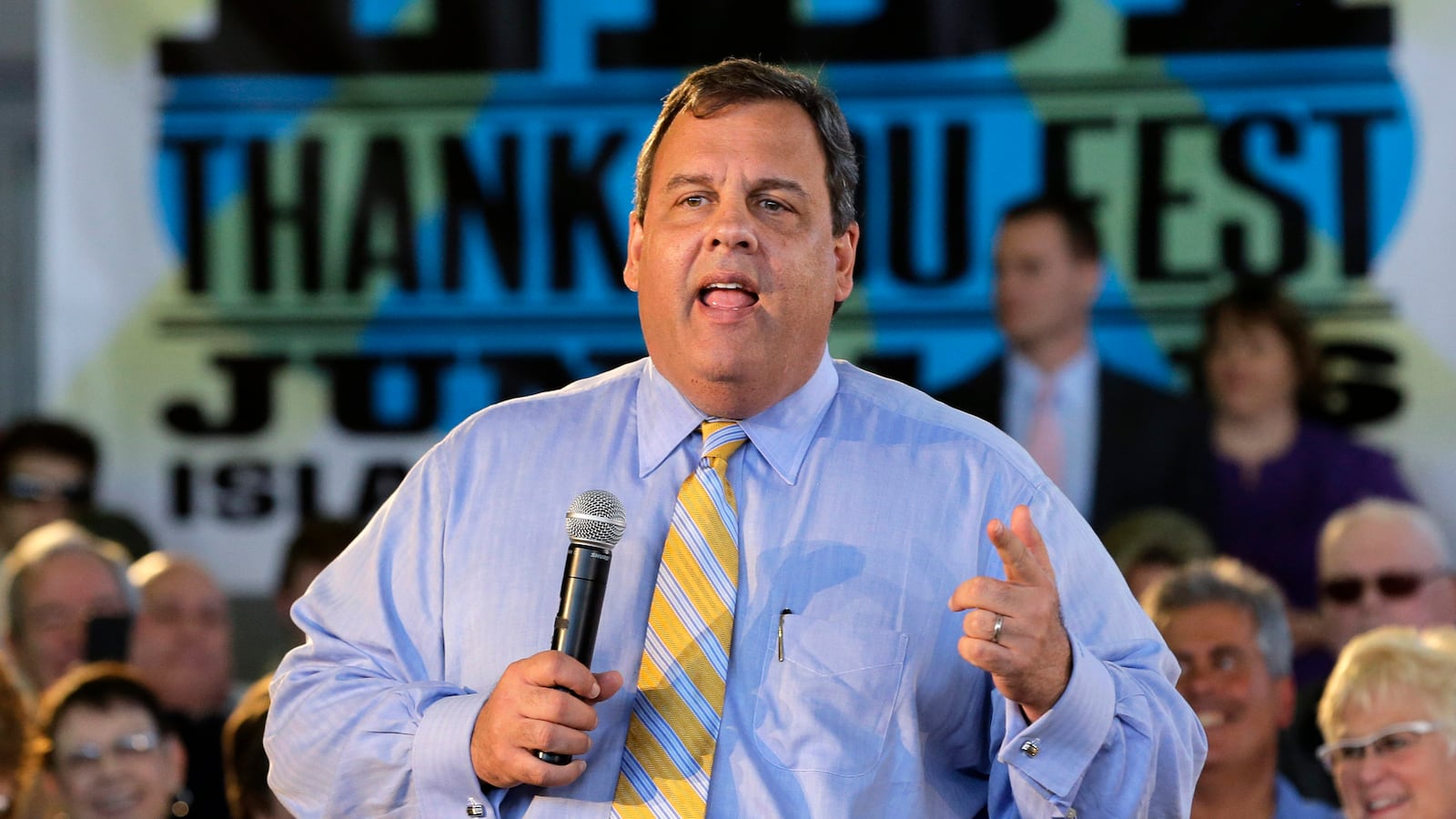Two Republicans made big news this week. One had a comeback, the other a lapbelt operation. The first was a sideshow, the second points toward a decisive test of whether the Republicans can be a competitive presidential party in 2016.
A special election in South Carolina saw the defeat of a first- rate Democratic candidate, Elizabeth Colbert Busch, who deserves to be known as something other than Stephen Colbert's sister. Congresswoman would have been nice. It was not to be. I was wrong and John Avlon was right: It turns out the mythical trip on the Appalachian Trail didn't lead Mark Sanford to political oblivion, but to the House of Representatives. It also turns out that the self–ordained, self-righteous voters in the land of Bob Jones University believe in family values—-until they don't.

Their flexibility could be critical to New Jersey Gov. Chris Christie, who has acknowledged shedding 40 pounds with the help of weight-loss surgery. He's right that it's "ridiculous" to assume that his poundage precluded a race for the Republican presidential nomination in 2016. Fat is an easy, unproven shibboleth of a barrier to the White House—much like age used to be, until that truism was soundly disproved by Ronald Reagan. The New Jersey governor says he had the operation for his health, his family, his children.
You don't have to be cynical to recognize that while the decision may not reflect a political imperative, it does have an important political implication. One Republican strategist who covets Christie as his party's 2016 leader has worried that he probably couldn't withstand the rigors of a national campaign, day in and day out, speech after speech, flight after flight, if he continued to carry around 350 pounds or more. The problem wasn't that he was unelectable because he looked like William Howard Taft; a century after Taft, the problem was the withering intensity of the modern road to the White House. In order to run, you have to be physically up to the task.
Christie still has another, possibly debilitating challenge. He's a conservative, but not a purist; he's a conviction politician—and a pragmatist too. That's precisely why he's the most delectable Republican candidate—and I don't aim to hurt him by writing that. But for him, Republican voters had better be in as forgiving a mood--as intent on winning--as they were in the South Carolina special. And there is a difference. There will be other candidates, truer believers, on the 2016 primary ballot.
You can make the case, and Steve Schmidt, John McCain's 2008 strategist does, that the primaries then and last year actually turned on winnability—that even New Gingrich's victory in South Carolina was the product of a delusional argument, bought by voters, that he could prevail in the fall despite his stunning flaws because he, and he alone, could out-debate Barack Obama.
Christie has to hope the winnability is what counts. He can't pretend that he's a dogmatic right-winger; who would believe him? And he so conspicuously believes in government—which he has used so effectively—that his reelection in his Democratic state is not in doubt. But does he transgress defining ideological litmus tests and potentially put himself beyond the pale of party acceptability? Let me count the ways.
First, he of course opposed Obamacare—or his national prospects would already be shattered—but when the choice was his, he opted into the bill's expansion of Medicaid to cover 104,000 more people in New Jersey. He told the state legislature: "It's the smart thing to do for our fiscal and public health." This earned him a Tea Party Nation tweet: "Liberal Jello blob Chris Christie thanks Obama by expanding Obamacare to N.J."
The wording here is calculated: Christie faces recurrent recriminations on the right for thanking the president-–and standing with him--in the aftermath of Hurricane Katrina. And typically, the pugnacious New Jerseyan refuses to back away. Less than two weeks ago, he appeared on “Morning Joe” and told the world: "The president has kept every promise he made to us."
This will not be forgotten in the mouth-to-mouth combat of the primaries–and neither will his Medicaid decision.
But let's not stop there. On gun control, a hair-trigger issue for Republicans who pick the nominee, Christie is in the center or even center–left field. A former prosecutor, he favors his state's existing gun laws--"some of the toughest in the nation." He's praised them as "much stronger already than the proposed Toomey-Manchin legislation"—the background checks just filibustered in the Senate. He's called for more stringent background checks to cover "mental health," for a ban on the Barrett .50-caliber rifle, and new penalties for gun trafficking. And after he denounced an NRA ad as "reprehensible" for exploiting the Secret Service protection of the Obama daughters, his 2016 rival, Kentucky Sen. Rand Paul, scorned him because he had "thrown [his] own team under the bus." When was the last time Republicans dared to put forward a standard bearer who rebuked the gun lobby?
And let's not stop there either—because the Christiephobes on the party's dominant right certainly won't. Unlike Rudolph Giuliani, a front-runner shot down in reactionary flames in 2008, Christie isn't pro–choice. But while he vetoed marriage equality as governor, he was ready to put it on a statewide ballot—where it would undoubtedly pass. He not only favors New Jersey's civil-unions law, but argued that it should be backed with an ombudsman to enforce it. In Iowa, where persuading fundamentalists is fundamental to success in the first-in-the-nation contest, I can already hear Christie's own words hurled back at him over and over: "I have been ...adamant that same–sex couples in civil unions deserve the very same rights and benefits enjoyed by married couples.” Ouch. This isn't marriage equality, but it's anathema to the religious right.
For Iowa, for the crucial contest in South Carolina, for xenophobes across the primary electorate, there is even more. The fevered neocons Daniel Pipes and Steve Emerson indicted Christie in the National Review when he was being considered as Mitt Romney's running-mate. Christie, they thundered, "has sided with Islamic forces against those who worry about safeguarding American security and civilization." Why, as U.S. attorney, he had embraced an Imam! He agreed that New Jersey Transit could fire an employee for burning the Koran! And worst of all, he appointed "an Islamist"--in fact a distinguished lawyer who happens to be Muslim and who had represented Muslim defendants and prisoners on a hunger strike--to the New Jersey Superior Court! When his appointee was attacked, Christie offered a trademark rebuttal: "It's crazy. It's crazy ... crap. And I'm tired of dealing with crazies."
I admire the candor, although this guy is too conservative for me. I couldn't be for him for president. But he's authentic, he's appealing and he could give Hillary Clinton or Joe Biden a genuine race.
How much does that matter to Republicans? Christie is far behind, in third place in the GOP field, in the saner arena of New Hampshire. We will soon test whether Steve Schmidt is right–or whether an alienated core of the GOP would rather be far right that elected president, whether in the journalist Jill Lawrence's telling phrase, Christie is "a Republican without a party."
So here's the week that was: Sanford's in the House and Christie's in the running. Soon he really will be able to run–slimmed-down, re-elected, and ready to go. Getting across the finish line is another matter.





